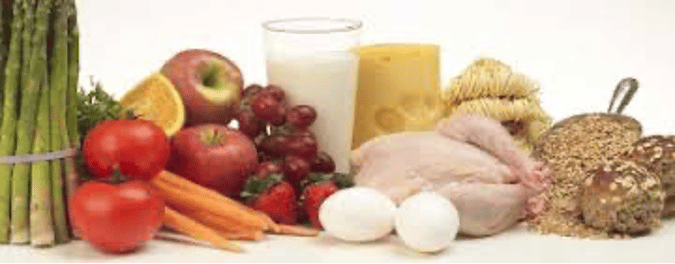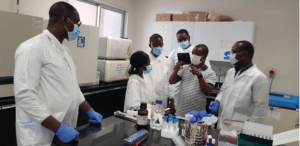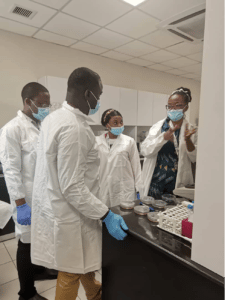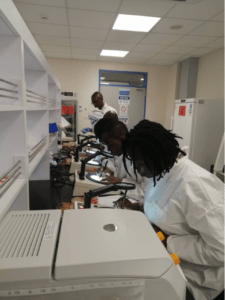Food / Water Safety and One Health



Food-borne microorganisms are major pathogens affecting food safety and cause human illness worldwide because of the consumption of foodstuff, mainly animal products contaminated with vegetative pathogens or their toxins. Most of these microbes have zoonotic importance resulting in a significant impact on both public health and economic sectors. Bacteria are the causative agents of two-thirds of human food-borne diseases worldwide with high burden in developing countries. The main objective of our research activities on Food and water safety is to determine the bacteriological quality of food (both cooked and raw) and water meant for human consumption as well as the presence of zoonotic bacteria pathogens and antimicrobial residues in food originating from animal origin. These studies determine the bacteria load and identify (zoonotic)pathogens to determine whether they are within the limits acceptable by the Food and drugs authority (FDA). Weconductbacteriological analysis of food and water for producers/companies and advice on strategies to maintain standards of production.
Adjei VY, Mensah GI, Parry-Hanson AK, Tano-Debrah K, Ayi I, Addo KK (2022). Microbial Safety of Beef Along Beef Value Chains in the Ashaiman Municipality of Ghana. Front. Vet. Sci.9:813422. Doi:103389/fvets.2022.813422
Mensah, G. I., Adjei, V. Y., Vicar, E. K., Atsu, P. S., Blavo, D. L., Johnson, S. A. M., & Addo, K. K. (2022). Safety of Retailed Poultry: Analysis of Antibiotic Resistance in Escherichia coli From Raw Chicken and Poultry Fecal Matter From Selected Farms and Retail Outlets in Accra, Ghana. Microbiology Insights. https://doi.org/10.1177/11786361221093278
Tingan, T. K., Mensah, G. I., Agyekum, E. B., Amanor, I. B., Addo, S. O., Ayamdoo, Y. I., Sarpong Duah, M., Mosi, L., Addo, K. K. (2022) Non-tuberculous mycobacteria, not Mycobacterium bovis, are a significant cause of TB-like lesions observed in slaughtered cattle in Ghana. IJID Regions, 3: 8-14 ISSN 2772-7076,
Mensah, G.I., Vicar, E. K., Feglo, P.K., Acquah, S. E. K., Saba, C.S.K., Ofori Addo, S., Ziem, J. B., Addo, K. K. (2018). Bacteriological Quality and Antibiotic Residues in Raw Cow Milk at Producer Level and Milk Products at Sale Points in the Northern Region of Ghana. International. Journal of TROPICAL DISEASE & Health, 34(2): 1-10. https: doi.org/10.9734/IJTDH/2018/46626
Addo, K. K., Adjei, V. Y., Mensah, G. I., Jackson-Sillah, D. (2016). Prevalence of tuberculosis infection in a cohort of cattle that enters the food chain in Accra, Ghana using Bovigam. Mycobacterial Diseases, 6:5. DOI: 10.4172/2161-1068.1000229.
Addo, K. K., Adjei V. Y., Mensah, G. I, Jackson-Sillah, D. (2014). Microbial Quality and Antibiotic Residues in Raw Beef from Selected Abattoirs in Accra, Ghana. International Journal of TROPICAL DISEASE & Health 6(1): 20-26.
Addo, K. K., Mensah, G. I., Aning, K. G., N. Nartey, Nipah, G. K., Bonsu, C. Akyeh, M. L., Smits, H. L. (2011). Microbiological quality and antibiotic residues in informally marketed raw cow milk within the coastal savannah zone of Ghana. Tropical Medicine and International Health, 16(2): 227–232.






